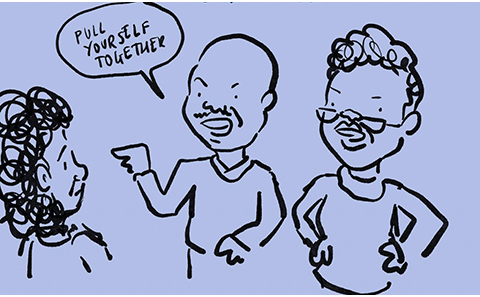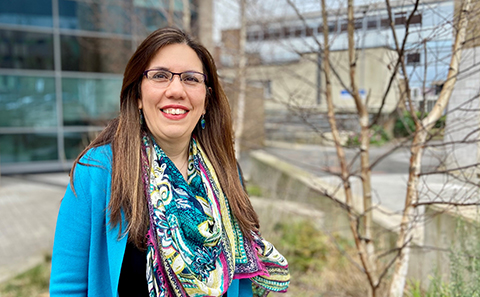University of Southampton Develops Online Tool to Support Long COVID Patients
A website to support people living with Long Covid is launched today, Long Covid Awareness Day, by a research team led by a Southampton professor with first-hand experience of the condition.
The online tool offers a symptom checker, advice on seeking support, and encourages people to talk about their symptoms with professionals, friends and family. It is live at long-covid-care.org.uk from today, the second annual International Long Covid Awareness Day.
Nisreen Alwan, Professor of Public Health at the University of Southampton who was made an MBE in 2021 for services to medicine and public health during the pandemic, has led the development of the online tool using research she and colleagues have conducted into the stigma and barriers to seeking care for Long Covid.
This research is part of the STIMULATE-ICP study, the largest UK clinical study of Long Covid to date, led by University College London Hospitals NHS Trust and University College London. The tool is also based on research findings from the HI-COVE study, led by the University of Westminster, which focused on the impact of Long Covid in minority ethnic groups. Both studies were funded by the National Institute for Health and Care Research (NIHR).

Long Covid is a global public health problem affecting millions of people to varying degrees. In March 2023, the Office for National Statistics estimated that 1.9 million people were living with Long Covid in the UK.
The tool is primarily aimed at people who may have Long Covid but are not currently accessing care, but may also be helpful to those who are. It aims to encourage people with probable Long Covid to seek support from the NHS or other services. It covers topics of self-doubt, stigma and effects on mental health as well as offering resources, tips, and advice on next steps.
The tool is also aimed at doctors and other professionals (social workers, social prescribers, allied health professionals, pharmacists), as well as community groups and voluntary organisations, to raise awareness about the difficulties people may face when considering reaching out for a health consultation or community support.

Professor Alwan, who herself suffered debilitating Long Covid during 2020, said: “We hope the tool can help prevent people who might be struggling with Long Covid symptoms from feeling alone. Long Covid can be extremely debilitating and can be very hard to talk about, as there is stigma attached.
“There are possibly many, many people out there who are not aware they have Long Covid. And many others who are not seeking any help due to not being sure about what is causing their symptoms, or not thinking their symptoms are serious enough to warrant medical attention from already overstretched services, or thinking that there is no cure so there’s no point in seeking help.
“My top tip is to seek care. If you think you have Long Covid, there is support available. But it’s also important to establish if it is Long Covid, or something else that warrants medical investigation.”
Dr Donna Clutterbuck, Population Health Sciences Research Fellow who is first author on the research paper informing the tool, added: “I hope this tool will support people to seek professional help, as well as make healthcare professionals more aware of the complex issues around seeking help for Long Covid. Anyone suffering from other post-viral illnesses could find this tool useful as well. I am really keen for the tool to be disseminated in communities to help achieve more equality in access to care and support.”

